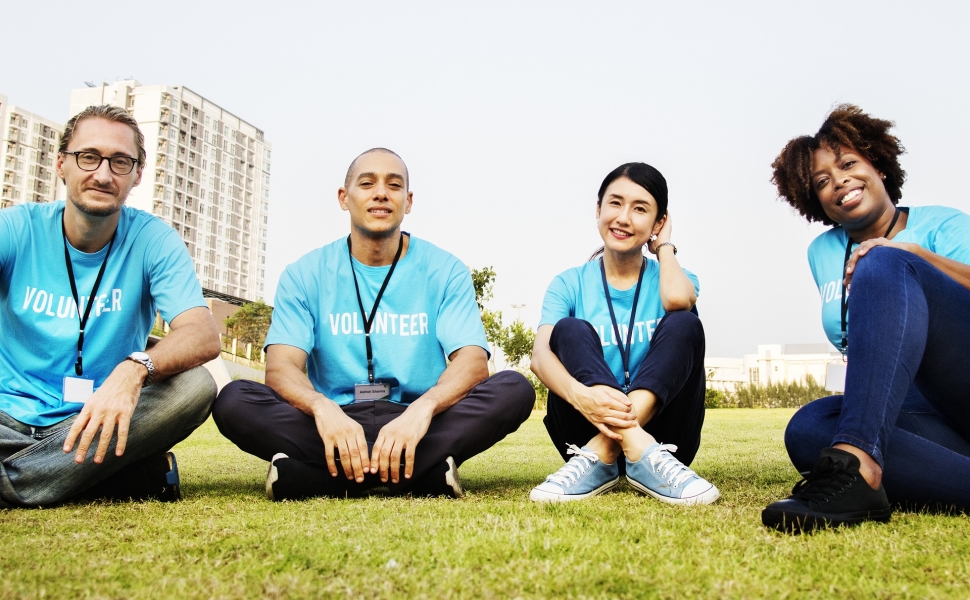Volunteering is something that many of us hold closely to our hearts. For generations, we’ve become inclined to invest our time into worthy causes to help create a greater community for everyone to live in. Not only does this have huge impacts on you as a person, but it also helps those in vulnerable situations feel part of something greater. We’ve teamed up with new stair lift provider Acorn Stairlifts to investigate further.
Although volunteerism has become a more common activity young people partake in, there’s no denying that it is heavily supported and somewhat reliant on the older generation. The Volunteer Study For New Zealand Search and Rescue (SAR) 2019 uncovered that 54 per cent of volunteers are over the age of 50. However, there was a significant difference shown when split by gender, with females accounting for 57 per cent and males just 44 per cent.
Although there is no official retirement age in the country, most people leave the workplace at 65, which would explain the above. World Bank has suggested that the life expectancy is around 82 years old. This would give someone a minimum of 17 years free time in which volunteering could become a hobby.
An Insight to SAR Volunteering
The SAR sector is common among New Zealanders for volunteering. In this sector, more men volunteer more than women, with 76 per cent and 24 per cent respectively. 48 per cent of their volunteers are over 50. This comes at a slight surprise when factoring the extreme circumstances that can be encountered in the SAR sector! The volunteer to staff ratio was quite significant in this sector too. As it stands, there are 11,416 people involved in SAR, 98 per cent of which are volunteers. This has been identified into four different areas:
- Surf Life Saving NZ — 5,526 volunteers and 75 staff members
- Coastguard NZ — 2,055 volunteers and 59 staff members.
- LandSAR — 3,432 volunteers and 14 staff members.
- Amateur Radio Emergency Communications (AREC) — 244 volunteers and 0 staff.
As you can see, the volunteer to staff ratio is quite significant. In terms of the AREC, there has been no staff appointed at all; likely a direct result of strict budgets. For older people who want to get involved, time contribution can be extremely valuable and make a great difference to wider communities. It can also allow them to have a sense of control and become part of the bigger picture.
Is volunteering helping combat loneliness?
Although this may come as a surprise, loneliness decreases as age increases in New Zealand — dropping significantly in the 65-74 age bracket. When looking at a person’s economic background, the lower your household income, the lonelier you tend to be. But with overall loneliness down for the older members of our society, there’d be no objection to linking volunteerism as one of the benefitting causes.
However, we did find that levels of loneliness increase again at 75 years and over. This could be down to opportunity, or more specifically, the lack of it. It’s no secret that as we grow older, we often become more fragile which means we can’t partake in physically demanding activities, such as SAR. While there are options like AREC, which may not require full agility, it’s important for older people to know there are many more options available to them.
Uncovering the opportunities
If volunteering is something that you’re interested in, you need to pick a worthy cause that is meaningful to you. Then, it’s all about communication and how you can get involved. For example, if you have a charity shop in your area, could you ask the staff whether you could help out? Or if there’s a homeless shelter nearby, is this something you could get involved in?
Volunteering doesn’t have to be physically demanding but know that anything you choose will be rewarding on a scale that is often unimaginable. What volunteering opportunity will you be looking for?
Sources:
https://nzsar.govt.nz/Portals/4/Documents/VNZ%20NZSAR%20Report%20FINAL%2004.02.19.pdf
